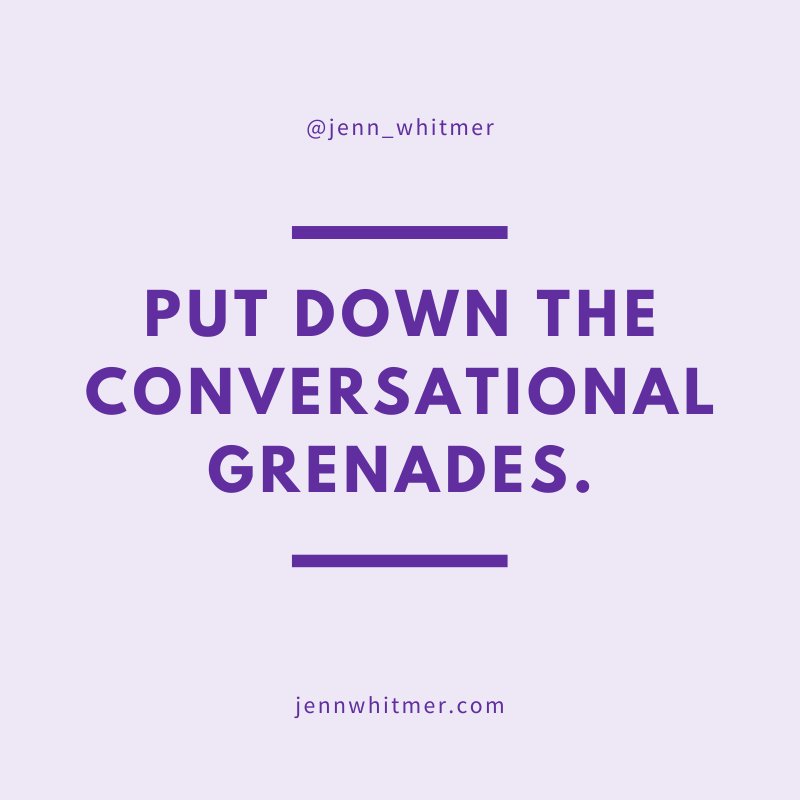Words can course-correct or crater-create.
In a conflict, words can be tools to increase understanding and connection. Words can bring us back to the purpose and begin healing wounds.
Words also damage, deflect and distract.
Every been bewildered by someone’s reaction to your words? You may have created a crater with your words.
How do you know which phrases will lead toward healthy resolution and which ones are conversational grenades that land you in a crater?
Three phrases that will blow up in your face
and what to replace them with.
You always… or You Never…
There is a joke in here somewhere about the only thing that never happens is always.
When we say, “You always…” or “You never…” we’ve set up a conversational escape route that feels like an attack to the other person. Now the other person remembers “THE ONE TIME” and has disproved your statement. And nothing is resolved.
Instead, try:
Often, I see this happen…
This is an issue sometimes…
Many times…
It’s atypical…
Rarely…
This is exactly what happened…
I have news, friend: You remember exactly what happened differently than others. Our minds are not machine video recorders. We create a story from an experience. The story can be accurate but not exact. The other person in the conflict will have a different story. Of course, there are observable facts, but facts only make sense in context.
How you make sense of the memory is important to the conversation, but saying it’s exactly what happened allows the other person to dismiss your statement, halting the resolution process.
Instead, try:
Here’s what I remember. What do you remember?
From what I wrote down, I remember…
From what I recall…
Here’s the story as I remember it…
Stop being emotional!
A truly impossible ask. To paraphrase Dr. Jill Bolte Taylor, we are not thinking machines with feelings. We are feeling beings who think. Emotions are valuable indicators in a situation. Emotions are not the entire story, and neither are thoughts.
Often when you want to say this, the conversation is intense and possibly headed out of control because of physical responses to stress. Bodily responses such as cortisol and adrenaline are not emotions or thoughts, but at heightened levels, affect self-regulation and communication. Other times, it’s because you are having trouble empathizing or understanding the other person’s emotional concerns. If either of these motivations turns into telling the other person to essentially stop being human, the resolution process stops.
Instead, try:
This conversation feels intense. I need to take a breath.
I’m feeling elevated and having a hard time being in control.
I feel like you are shouting at me. Please stop.
Can we pause? I’m feeling like this is getting out of hand. Let’s come back in 15 minutes.
Can you help me understand why you feel that way?
What are some reasons you feel like that?
Whenever you’re learning this type of new skill, it takes time. Take these phrases and make them your own or practice them until they sound like you. You’ll find your words will begin to steer your conversations toward healthy resolution.
For more, download 20 Helpful Phrases in Difficult Conversations.
What phrases will set you on edge? What would you rather hear instead?

COMMENTs:
0